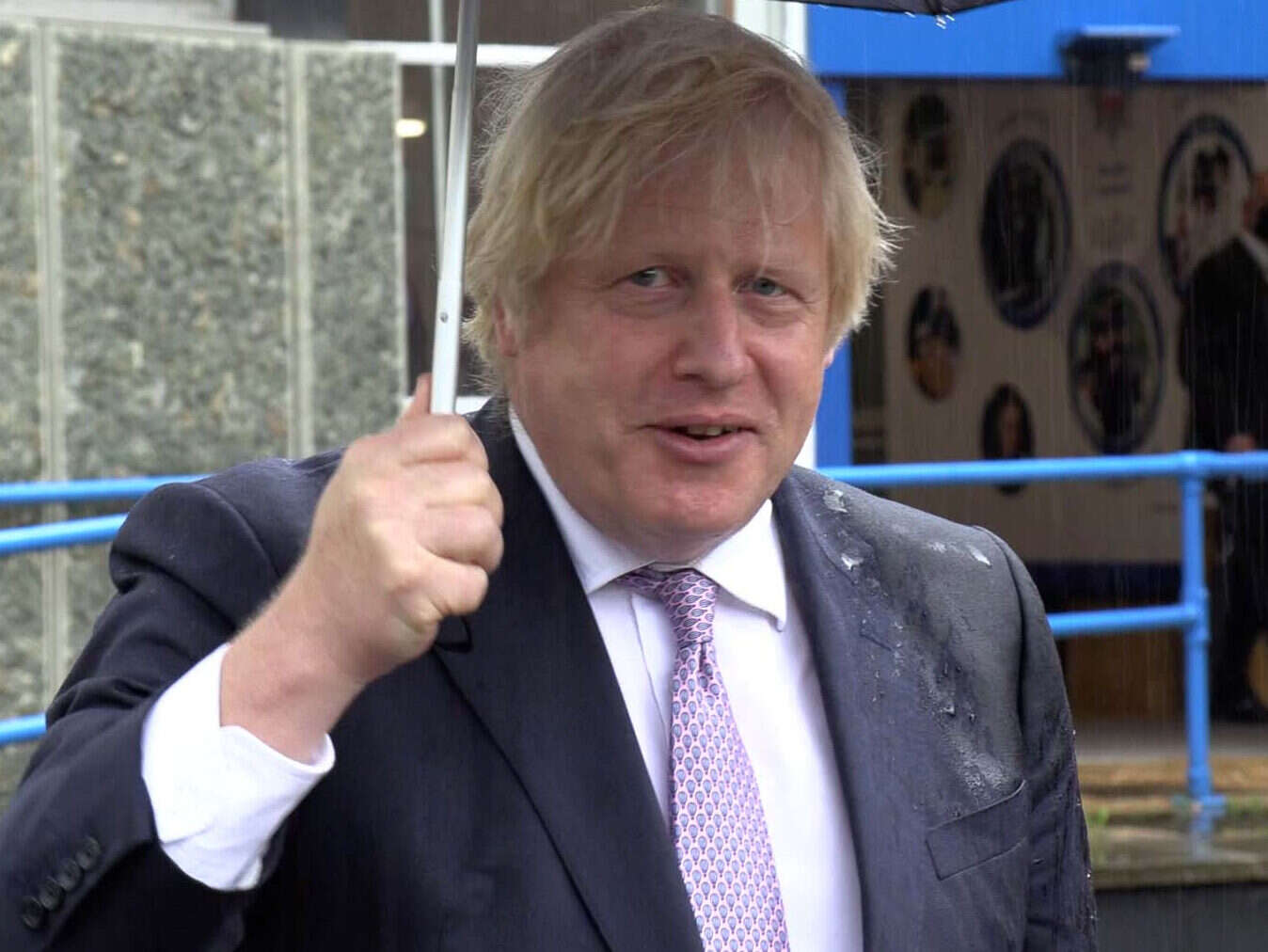
The Prime Minister said he does not want to see journalists prosecuted for doing what is in the public interest amid alarm that a review of the Official Secrets Act could curtail investigative reporting.
Fears have been raised that a Home Office consultation into updating the 1989 Act could lead to reporters who are given leaked documents being treated similarly to spies.
Investigative journalists could face jail sentences of up to 14 years under planned changes that the industry has said could “criminalise” the press for upsetting the current and future governments.
The Sun said exposes such as the last month’s damaging revelations about Matt Hancock’s relations with his aide, which broke coronavirus social distancing rules and led to his resignation as health secretary, could become things of the past if the changes are brought in.
But in an interview with LBC, Boris Johnson said he did not think “for one minute” that the alterations, designed to account for shifting threats in the digital age, could prevent journalists from carrying out investigations.
‘Whatever this thing is’
The former journalist said: “We don’t – I don’t – want to have a world in which people are prosecuted for doing what they think is their public duty and… in the public interest.
“I’m full of admiration for the way journalists generally conduct themselves.
“Whatever this thing is, I don’t for one minute think it is going to interrupt the normal process.”
Johnson said many of the great exposes in journalism, such as Watergate in the US or the thalidomide drug scandal over treatment given to pregnant women, stemmed from “tainted sources”.
In 1988, Johnson was himself sacked by The Times after he made up a front-page quote.
The former Spectator editor told LBC that “one man’s treacherous betrayer of confidences and irresponsible leaker is another man’s whistleblower” as he defended journalists.
He said most behaved with “great responsibility” when it came to handling information that should “not be put into the public domain”.
Consultation feedback to be considered
But, asked whether the consultation on the Official Secrets Act should be “ripped up”, Johnson suggested the review of the feedback should continue given it is already under way. The consultation ended on Thursday last week.
The issue was raised with No 10 last week by reporters during one of the daily media briefings.
A spokesman for the Prime Minister said: “You’ve heard the Prime Minister speak before about the vital role the press plays in being allowed to investigate things that are in the public interest.
“We are clear that freedom of the press is an integral part of the UK’s democratic process, which is why we’ll always be committed to ensuring the right balance is struck between protecting press freedoms and the ability of whistleblowers to hold organisations to account.
“But as you know, this is a consultation and, as we do with all consultations, we’ll consider all the responses carefully before we make any decisions.”
Asked whether that left the door open to a public interest defence being included in the updated Act, the spokesman added: “It is a consultation so it is important we allow that to run its course and we study the responses closely before we set out any more details in due course.”
Objections have continued to be raised in the press even though the consultation is closed.
Proposed public interest defence put forward
On Wednesday the editorial board of the Financial Times said the proposals “present a threat to news as we know it”.
“Good journalism, and by extension society, relies on leaks that expose abuses of power. Almost by definition, these disclosures are not authorised…”
The board criticised the vague wording of the proposals, saying it “fails to distinguish legitimate newsgathering, lumping in journalism with espionage, and even stating that publishing leaks can sometimes do more damage — an extraordinary leap for a government whose prime minister, Boris Johnson, is a former journalist”.
Human rights barrister Alex Bailin QC wrote in Politics Home that the Government must take this “golden opportunity” to enact a public interest defence.
Experts from Matrix Chambers, Mishcon de Reya and Powerscourt have submitted a proposed statutory defence which Bailin said would require assessment of the “gravity of the misconduct exposed, whether the disclosure was done altruistically or for gain, and whether there was a realistic prospect of a more limited disclosure”.
Bailin said: “The defence strikes a balance – it would not be a carte blanche for whistleblowers, nor would it encourage information anarchy where nothing can be kept secret. Instead, a claim that a disclosure is in the public interest would need to be assessed, by a judge and jury, against objective criteria and the manner of the disclosure would also need to be carefully considered.
Picture: PA
Email pged@pressgazette.co.uk to point out mistakes, provide story tips or send in a letter for publication on our "Letters Page" blog
